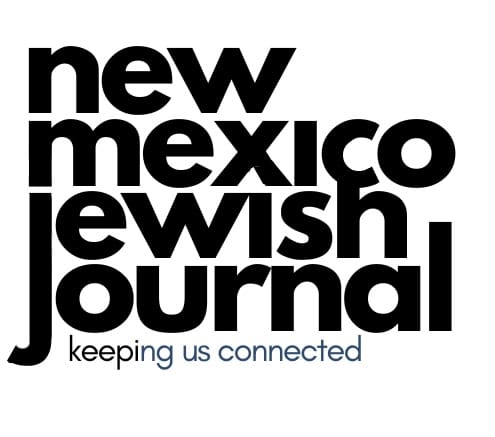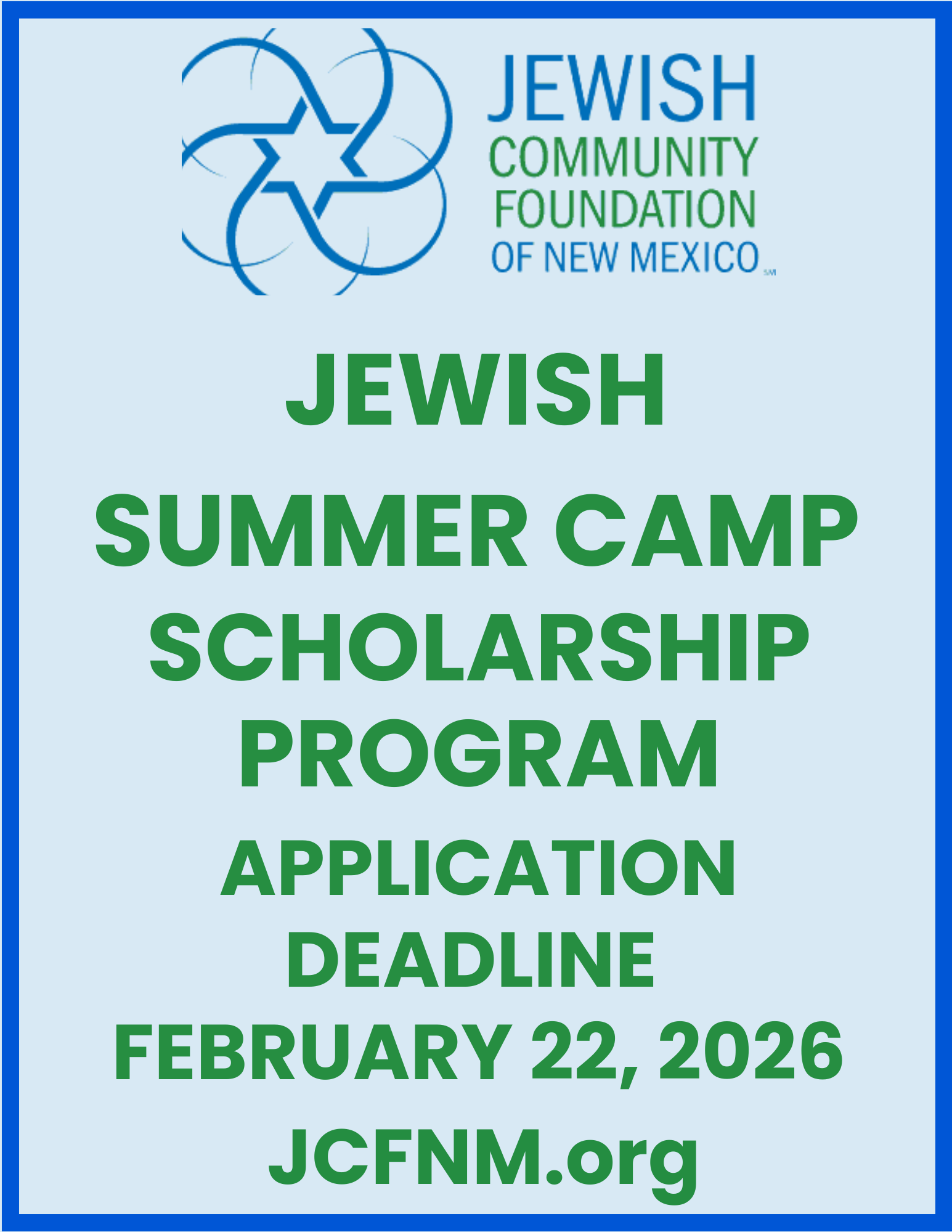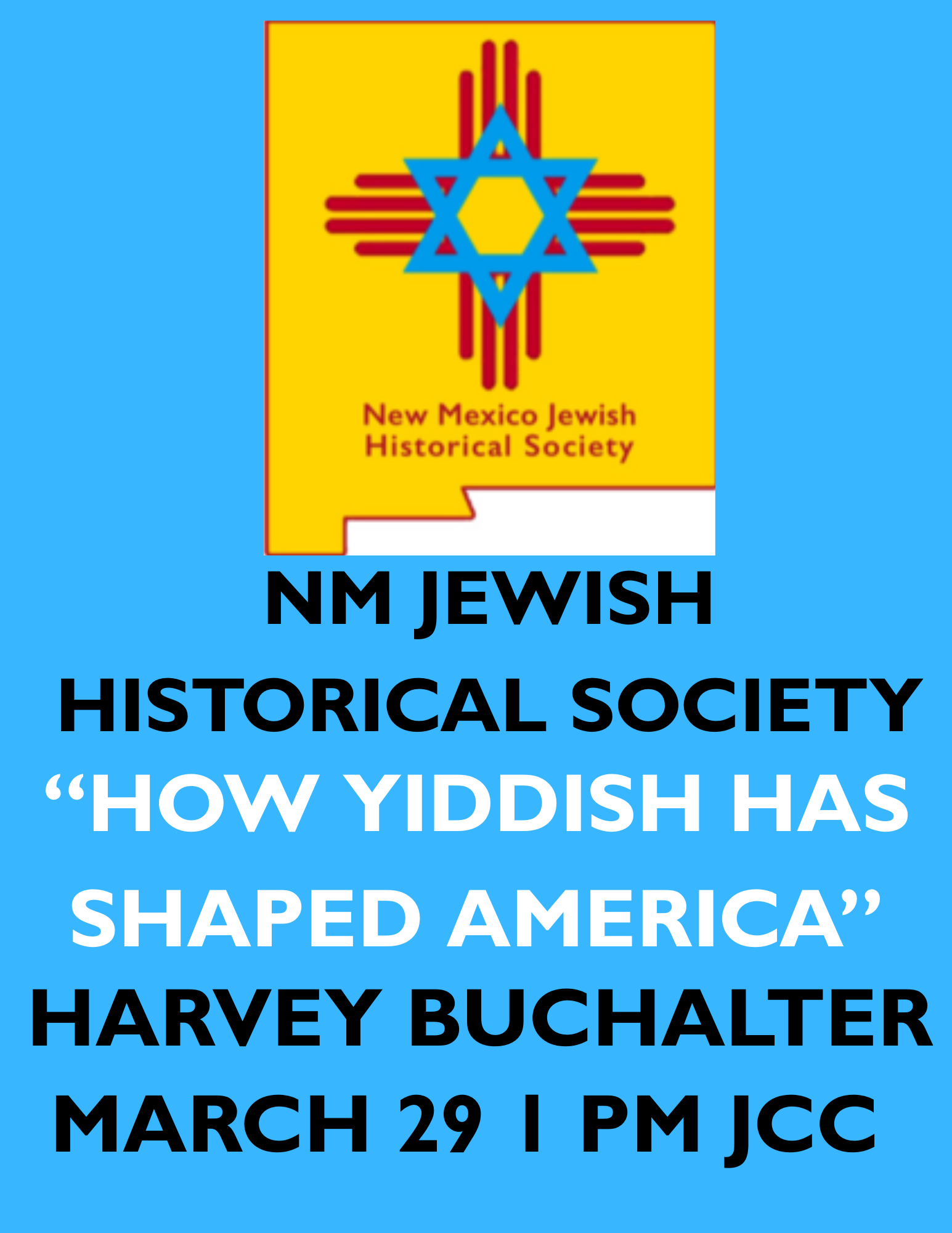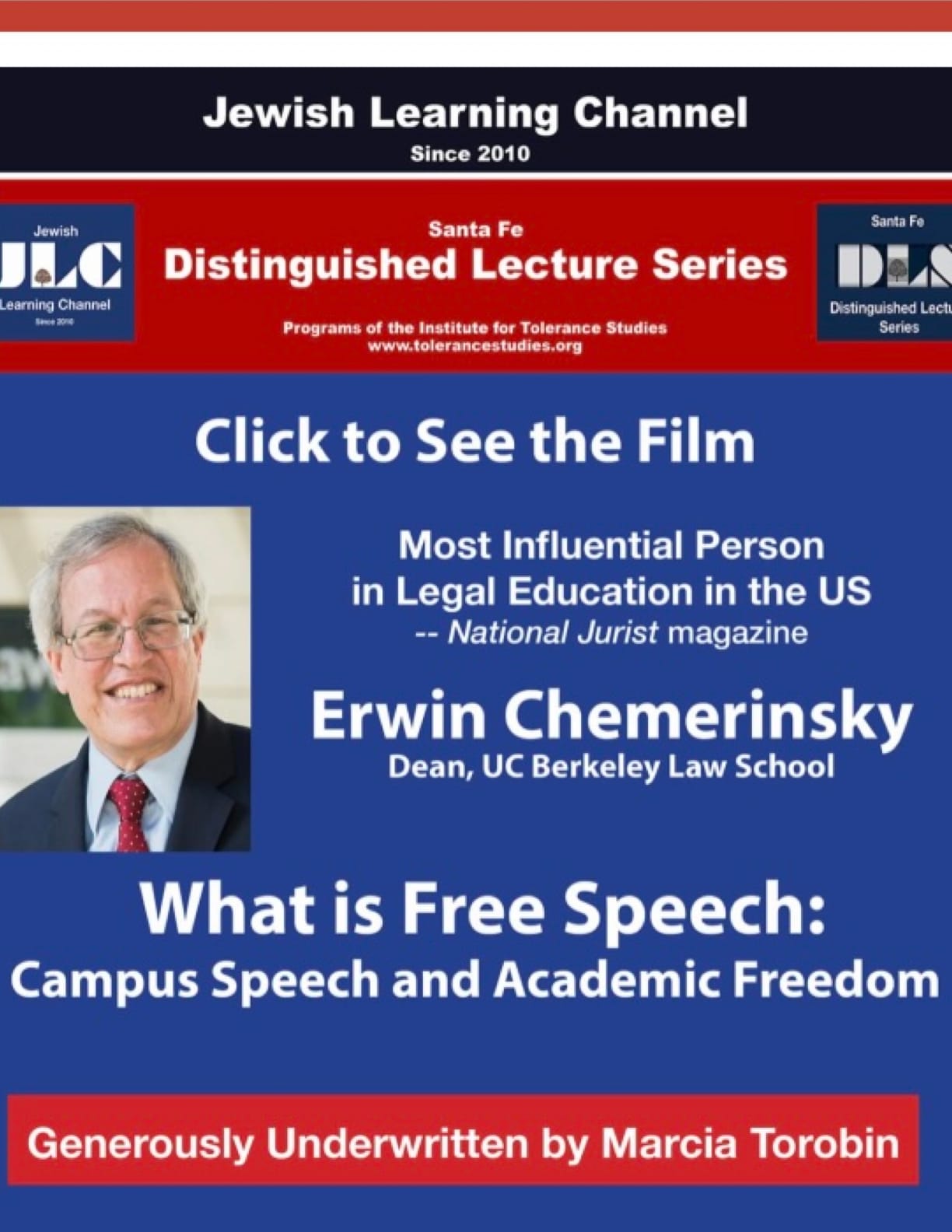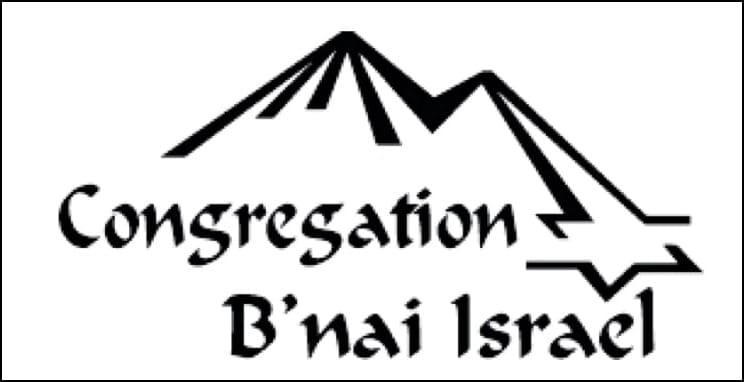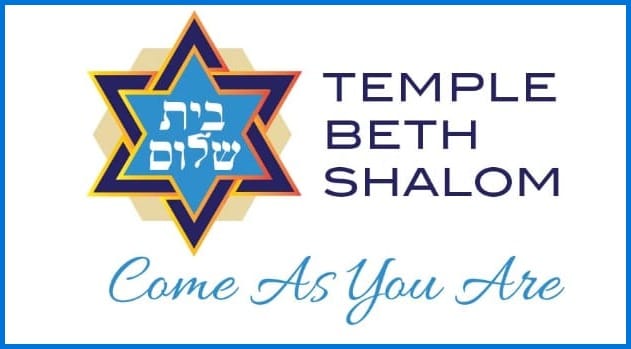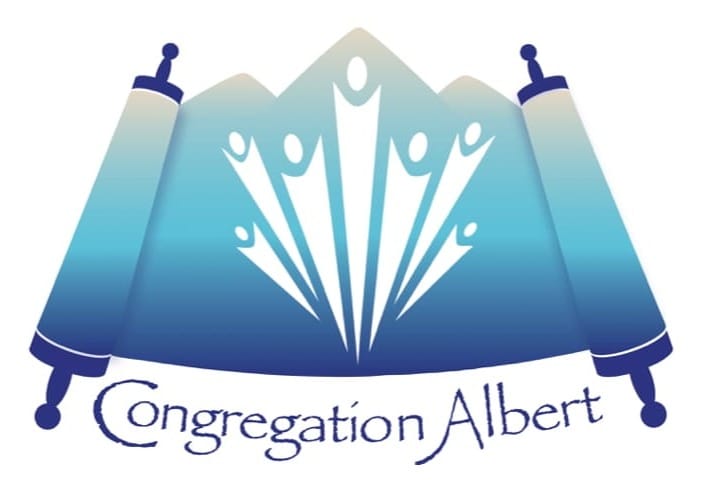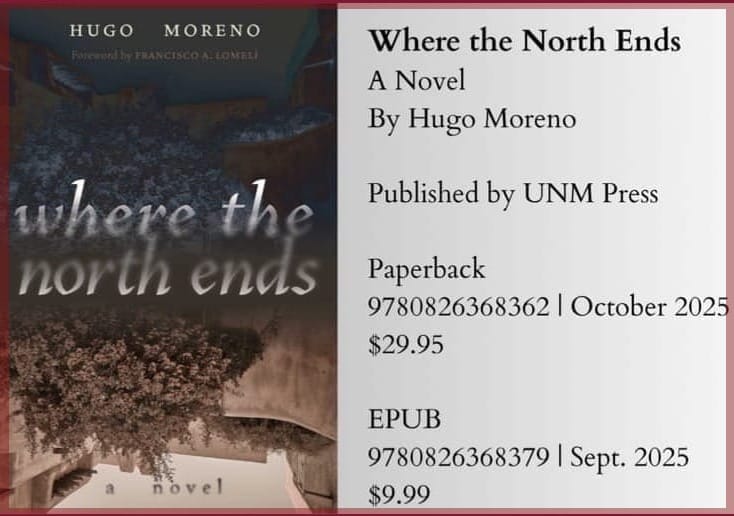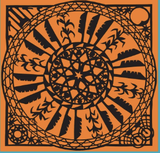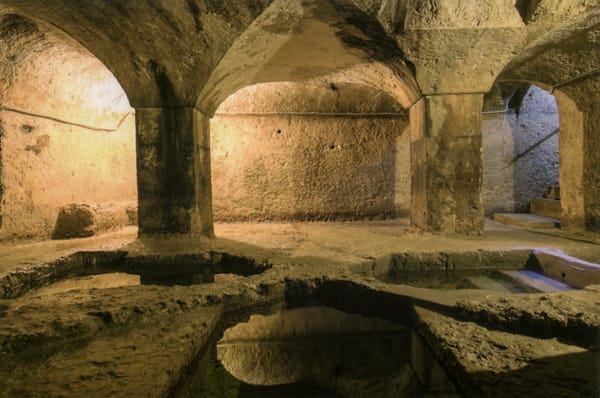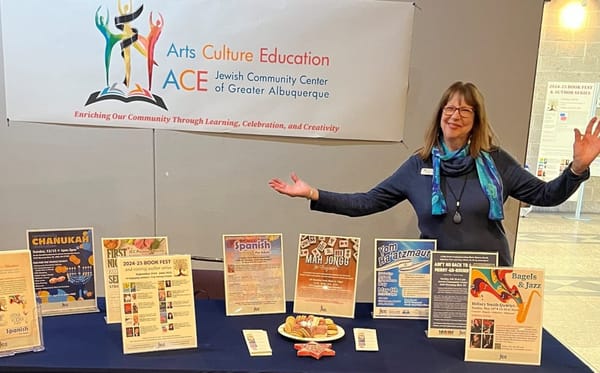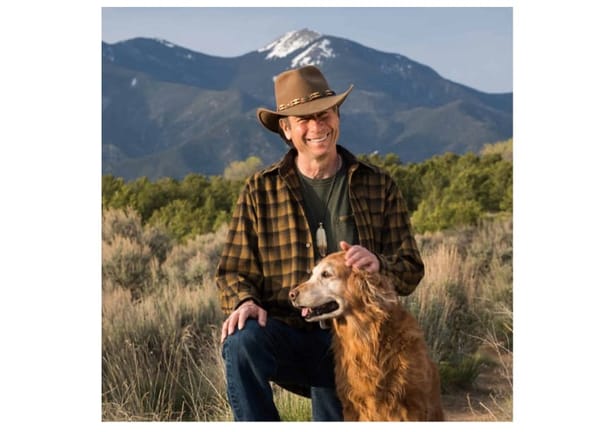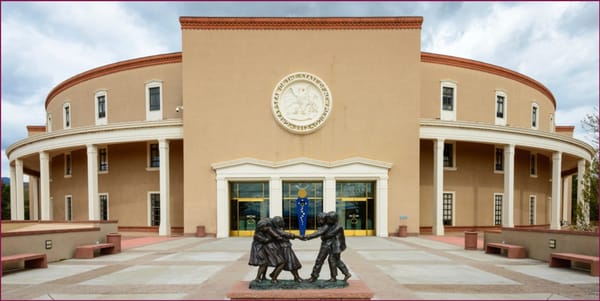The Institute for Tolerance Studies Makes Music
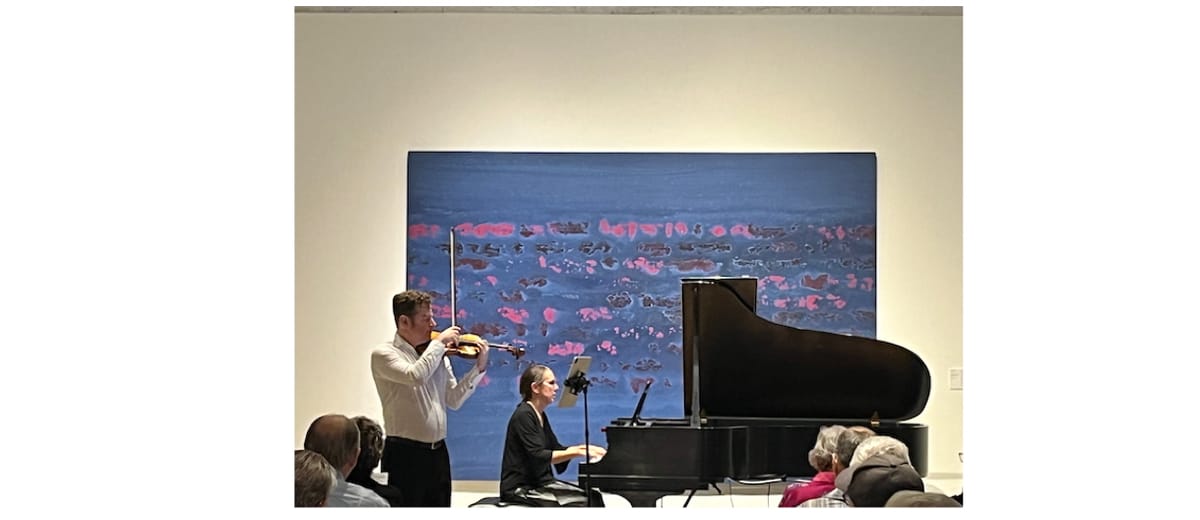
By Bonnie Ellinger
On June 11, 2025, the Institute for Tolerance Studies organized a celebratory concert of Jewish composers for its 20th anniversary at the CCA Munoz Waxman Gallery in Santa Fe. The Institute was established by Ron Duncan Hart and Gloria Abella Ballen for the purpose of addressing antisemitism, intolerance, and religious diversity. Over the years, the Institute has brought international scholars, Pulitzer Prize winners, and national award-winning authors to discuss social and cultural issues. Recorded talks and interviews of the Santa Fe Distinguished Lecture Series are available on the Gaon Web Films YouTube Channel. Notable programs have recently featured leading scholars such as David Kertzer on The Pope at War, El Mehdi Boudra on Jews and Muslims in Morocco (with Vanessa Paloma Elbaz) and Steven Ovitsky: My Life with Music and Great Jewish Composers.
David Felberg and Judith Gordon perform a concert of Jewish composers for the Institute for Tolerance Studies' 20th Anniversary Gala. photo © Diane Joy Schmidt/nmjewishjournal.com
The concert’s ten selections were performed by outstanding musicians David Felberg (violin) and Judith Gordon (piano). Both Felberg and Gordon regularly perform at Chatter, a 20+ year musical organization dedicated to bringing classical music, both familiar and new, to Albuquerque and Santa Fe 50 weeks a year. Who are David Felberg and Judith Gordon?
David Felberg is a founder and artistic director of Chatter --where he often gives NM premiers of 20th and 21st century music. He teaches violin at the University of New Mexico, where he is director of the Contemporary Chamber Ensemble. He is also concertmaster of the Santa Fe Symphony and has been a soloist with that orchestra, as well as with the New Mexico Philharmonic, New Mexico Symphony, and the Palo Alto Philharmonic, among others. He performs regularly throughout the Southwest as a concerto soloist, recitalist, chamber musician, and conductor.
Judith Gordon explores a diverse repertoire both as a soloist – and in collaboration with other instrumentalists and singers. Starting with a recital debut at the Metropolitan Museum of Art and later named Musician of the Year by the Boston Globe, she has often been heard at festivals, including Charlottesville, Music Mountain, Santa Fe, Tanglewood and Chatter, and she has performed with the Boston Pops and the Saint Paul Chamber orchestra, among others. Judith was an associate professor of music at Smith College from 2006-2020 and is now based in Albuquerque.
The composers selected for the concert – from Mendelssohn to Gershwin – are a diverse group of Jewish music writers from the 19th to the 21st centuries, with different styles, techniques and visions. Ernest Bloch (1880-1959) was a Jewish Swiss American composer who captured the sounds of melodic Ashkenazi tunes in “Nigun from Baal Shem: Three Pictures of Hassidic Life”, whereas Mendelssohn (1809-1847) explores a kind of stream of consciousness in “Song without words Op. 84/5”. Philip Glass (1937- ) creates a contemplative essay in” Etude #16”, and Julia Wolfe (1958- ) enjoys 2 minutes of a vibe or jolt in “Earring.”
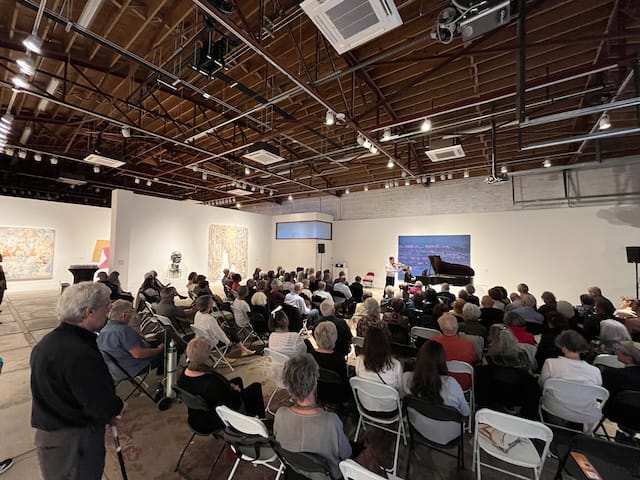
Arnold Schoenberg (1874-1951) was a virtuoso Austrian American of the Second Viennese School which included Webern and Berg. For his 12-tone “Phantasie for violin solo and piano Op.47”, the entire violin part was completed first. The piece is described as one of opulent figuration, instrumental improvisation and spontaneous expression. The piano part is seen as an accompaniment, whereas pianist Judith Gordon prefers to think of it as a “journey” with the violin. In the 1930s, Schoenberg had intended to travel to Germany, but, instead, in 1933 emigrated to California, where he became a US citizen, and taught at the University of Southern California.
Following Schoenberg, we were introduced to Bryce Dessner (1976 -), a guitarist in the rock band National, a classical composer, and a producer for Taylor Swift. His “Ornament and Crime III for Aaron Copland” is a reference to the use and overuse of musical ornamentation. He has won Grammy Awards for his classical compositions and is a vital and rare force in new music. Morton Feldman (1926-1987) was part of the New York school of composition with John Cage and was influenced by the contemplative paintings of Rauschenberg and Rothko. His piece is soft and fluid and very slow, one note at a time. Occasionally he composed pieces that only made use of the white keys.
Aaron Copland (1900-1990) composed the Sonata for Violin and Piano in 1943. Virgin Thomson, American composer and critic wrote in 1944 that the Sonata was “one of its author’s most satisfying pieces. It has a quality at once of calm elevation and of buoyancy that is characteristic of Copland and irresistibly touching.” We can hear elements of Copland’s Appalachian Spring in the piece, which is very melodic.
The final piece of the evening, by George Gershwin (1898 – 1937), was “It Ain’t Necessarily So” from Porgy and Bess. The arrangement is by Jascha Heifetz (1901-1987), considered one of the greatest violinists of all time. It brought the house down. An interesting note is that Schoenberg and Gershwin were neighbors and tennis partners in LA.
What can we say about David Felberg and Judith Gordon? They are master musicians. Each is a superb instrumentalist on their own, and they shine as a duo. Their exceptional give and take allows them to create powerful musical experiences, and their playing was both beautiful and evocative. Each piece, whether familiar or new to the audience, got the attention and care it deserved.
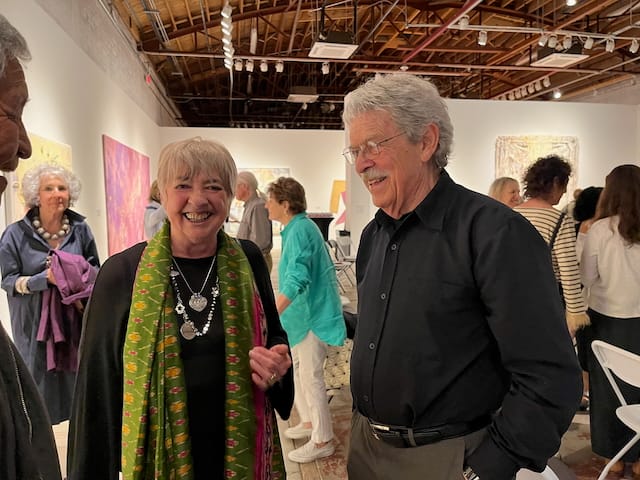
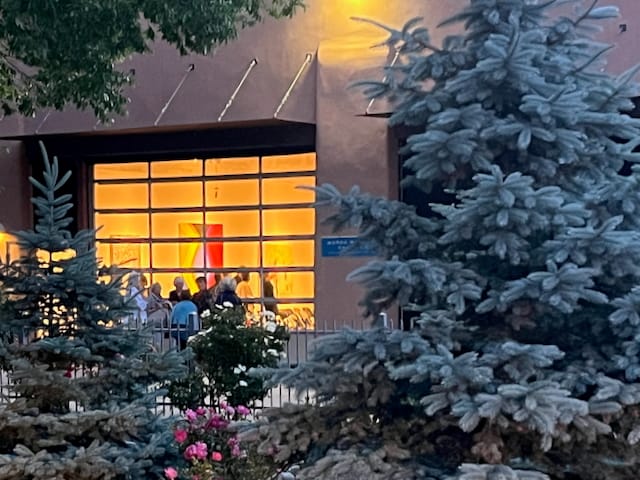
Learn more at https://www.distinguishedlectures.com/
Bonnie Ellinger in the New Mexico Jewish Journal
Ron Duncan Hart in the New Mexico Jewish Journal
Gloria Abella Ballen in the New Mexico Jewish Journal
Return to HOME
Community Supporters of the NM Jewish Journal include:
Jewish Community Foundation of New Mexico
Congregation Albert
Jewish Community Center of Greater Albuquerque
The Institute for Tolerance Studies
Jewish Federation of El Paso and Las Cruces
Temple Beth Shalom
Congregation B'nai Israel
Shabbat with Friends: Recapturing Together the Joy of Shabbat
New Mexico Jewish Historical Society
Where the North Ends, A Novel by Hugo Moreno
Policy Statement Acceptance of advertisements does not constitute an endorsement of the advertisers’ products, services or opinions. Likewise, while an advertiser or community supporter's ad may indicate their support for the publication's mission, that does not constitute their endorsement of the publication's content.
Copyright © 2025 New Mexico Jewish Journal LLC. All rights reserved.
